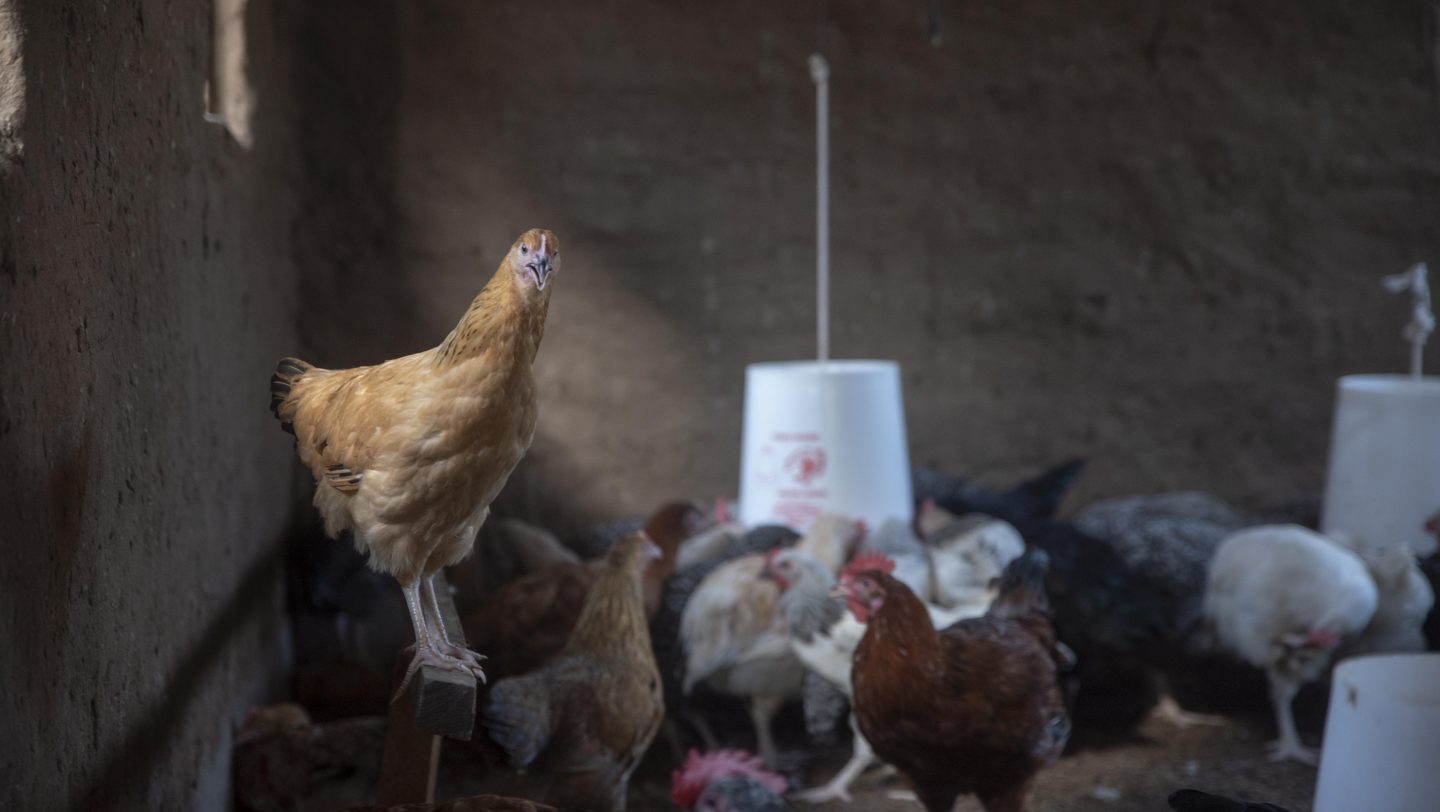Burundi refugee in Kakuma makes a fortune from Chicken Farming
Poultry business in Kakuma has not been fully explored and has a lot of potential and many opportunities for business minded people to invest in and earn good returns
Bigirimana Christophe, a chicken farmer supplies meat and eggs to restaurants and humanitarian agencies in Kakuma. He also supply eggs to refugee-owned shops in Kakuma camp. ©UNHCR/Samuel Otieno
It is 0600 hours and a beautiful golden sun warms up the Kakuma Refugee Camp, located in North-Western Kenya. Breaking the silence of the night, a cock crows and the birds start chirping. Bigirimana Christophe steps out of his one-room semi-permanent house and heads to his poultry house.
“I like it when my birds are happy and eating well.” He says. “I’m not happy when any of my birds look weak and unwell.” He adds.
Forced to flee from his home in Burundi, Bigirimana, arrived in Kakuma in 2011 bringing with him nothing but his passion for business and determination to succeed against all odds.
I like it when my birds are happy and eating well
“When I arrived, life was tough so I bought a bicycle and started transport business. Within a short time, I had two bicycles running. But I had to sell the bicycles when motorbikes were introduced and used the money to buy my first 20 chicks which I later sold at a profit,” he recalls.
“A refugee is just like anyone else. A refugee is not a burden and can be self-reliant. We should welcome them,” says Bigirimana.
Bigirimana now has over 400 chickens in his small farm located in Hongkong area, in Kakuma and is an inspiration to many other refugees and Kenyans.
According to Bigirimana, poultry business in Kakuma has not been fully explored and has a lot of potential and many opportunities for business minded people to invest in and earn good returns.
“My main clients are Kenyans and refugees,” he says. “I supply meat and eggs to restaurants and humanitarian agencies in Kakuma. I also supply eggs to refugee-owned shops in Kakuma camp.”
He describes his prices as pocket-friendly and affordable with a 1.8Kg broiler going for as little as 800 (8US$) shillings and one egg on retail going for 20 (0.2US$) shillings.
A refugee is just like anyone else. A refugee is not a burden and can be self-reliant
According to Edith Ingutia, UNHCR’s Livelihoods Officer, poultry business has a multiplier effect. “Poultry business injects new demand in the market for eggs, meat, feeds and incubation technology which is mostly solar powered. This innovative approaches translates to more income for entrepreneurs like Bigirimana,” she says.
Efforts are being made to support poultry farming by various UNHCR partners such as, Danish Refugee Council (DRC), DanChurchAid (DCA), and GIZ, in Kakuma and Kalobeyei. Such interventions include support to chicken feed businesses, installation of solar powered incubators, and distribution of improved chicken breed to host community and refugee families.
“I get my feeds and vaccines from Kitale. I have several contacts whom I can call to make orders. But, it would be cheaper if I could get the feeds, chicks and vaccines locally,” adds Bigirimana.
Bigirimana is grateful for the assistance he has so far received, including construction of a poultry house by DCA, but highlights the need for access to loans for small sized businesses and clean water for his business.
“My biggest challenge is water. Most of the time I only fetch three to four Jerricans (20-litre jerricans) of water depending on how many people turn up to fetch water on that day. My business requires up to 160 liters of water per day.”
There are approximately a quarter million people living within a radius of 15 kilometers out of which 187,000 are refugees from over 10 nationalities.
Share on Facebook Share on Twitter



